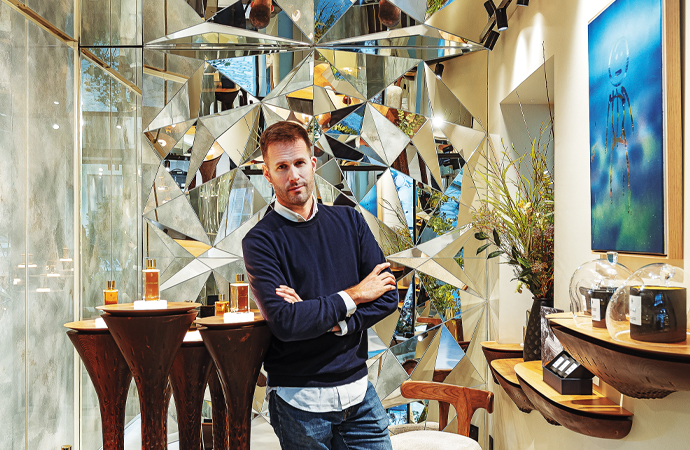The Rosewood Hotel Group’s Plan to Curb Its Environmental Impact
The company's new initiative, Rosewood Impacts, frames its ambitions into concrete goals
August 22, 2023

Mehvesh Mumtaz Ahmed / Illustration: Joel Kimmel
The decisions we make don’t divide society, environment and climate into neat little groups or silos—everything is interconnected. The degradation of the natural environment affects us, whether it’s the quality of the air we’re breathing or dwindling economic and environmental resources. For Rosewood Hotel Group to deliver impact, it makes sense to consider the social and environmental holistically.
Our new initiative, Rosewood Impacts, frames our ambitions into concrete goals. Rosewood Impacts is not about a string of corporate social responsibility initiatives. It’s about doing business that enables equal access to opportunity and embraces circular hospitality.
Circular hospitality is about creating an operational ecosystem that doesn’t burden the environment. It’s incredibly hard because hotels are complex, but that hasn’t stopped us from putting in place some ambitious goals. In another two and a half years, we want 70 percent of our waste to be diverted from landfills and incinerations, and our absolute end goal is to be carbon-neutral by 2050.
If you stay at a Rosewood, you won’t find those small shampoo and soap bottles in guest rooms. We have eliminated those single-use plastic bottles in favor of large, refillable bottles, and some of our hotels—like Rosewood São Paulo—are free of single-use plastics in most areas. In many cases we’re switching to glass, but it’s not enough to just substitute single-use plastics for glass. Where does that glass waste go? Our properties are stepping up and investing in glass crushers that convert glass into sand to use for man-made beaches. A few hotels, including Kona Village that opened July 1, are running on 100-percent renewable energy.
Opportunity Employment is a group-wide program that I’m incredibly proud of. By working with NGOs, our hotels identify the most underserved groups in surrounding communities, whether these are hill tribe members in Thailand, refugees in Hong Kong, racial minorities in the U.S., or people with disabilities. We want to work with local community organizations that can become a bridge between us and these groups, helping to develop a level of trust so that we can truly be a welcoming and inclusive workplace.
Another focus for us involves education and upskilling, because enabling access to opportunity is not enough—we need to set people up for success when they get opportunities. Rosewood Bridges is a group-wide program connecting young people in vocational programs with careers at Rosewood. We just launched a partnership with the Vocational Training Council in Hong Kong that takes vocational students abroad to our different global properties for internships. This is just one example of us starting to embark on this journey of equalizing the opportunities that are available to young people.
When I think about what types of businesses will thrive 30 years from now, it’s those with purpose, businesses that have managed to integrate impact so that they’re delivering on the triple bottom line: profit, people and the environment. That’s our future.
I’ve only been in the hospitality industry for two years, and what excites me most are the answers I hear when I ask people, “Why have you chosen to work in hospitality?” Most tell me they want to make people happy. I’ve worked across industries and sectors, and that’s not a response I’ve ever heard. That is hospitality’s superpower: If people are motivated to make others happy, that’s fertile ground for delivering positive impact through everything we do.
Mehvesh Mumtaz Ahmed is the vice president of social impact at Rosewood Hotel Group. Prior to Rosewood, she led insights and strategy on philanthropy and impact investment across 18 Asian economies. She also worked for the New York City government, World Bank and the United Nations.




